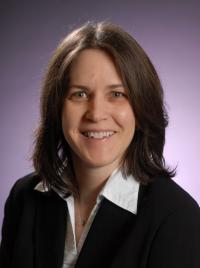
Dr. Krista Lanctôt leads a large interdisciplinary research team whose work has focused on understanding how neuropsychiatric symptoms, such a mild cognitive impairment and mood disorders, interfere with cardiac rehabilitation. The overarching theme of her work is to understand the neurobiologic basis of these symptoms as risk factors for poor response, and use this information to develop targeted interventions. For example, her work has shown links between these symptoms and inflammation, oxidative stress and lipid aberrations. Dr. Lanctôt's team uses a variety of tools including neuroimaging, lipidomics, pharmacogenetics and neuropsychiatric assessments to unravel the link between dysfunction in various cellular and molecular processes and manifestation of these symptoms in a cardiac rehabilitation population. In addition, her group has run clinical trials of dietary, pharmacologic and exercise interventions for these symptoms.
Each year tens of thousands of Canadians are diagnosed with coronary artery disease (CAD) which poses a serious risk to their health and well-being. Depression and associated symptoms of cognitive impairment are common neuropsychiatric symptoms in CAD and have a major negative impact on treatment outcomes and life expectancy. Dr. Lanctôt's work has also shown their negative impact on cardiac rehabilitation outcomes. Understanding the neurobiology of these symptoms may allow us to predict response to cardiac rehabilitation and, on a broader level, may lead to the development of novel therapies.
Each year tens of thousands of Canadians are diagnosed with coronary artery disease (CAD) which poses a serious risk to their health and well-being. Depression and associated symptoms of cognitive impairment are common neuropsychiatric symptoms in CAD and have a major negative impact on treatment outcomes and life expectancy. Dr. Lanctôt's work has also shown their negative impact on cardiac rehabilitation outcomes. Understanding the neurobiology of these symptoms may allow us to predict response to cardiac rehabilitation and, on a broader level, may lead to the development of novel therapies.

 https://orcid.org/0000-0001-7024-6637
https://orcid.org/0000-0001-7024-6637